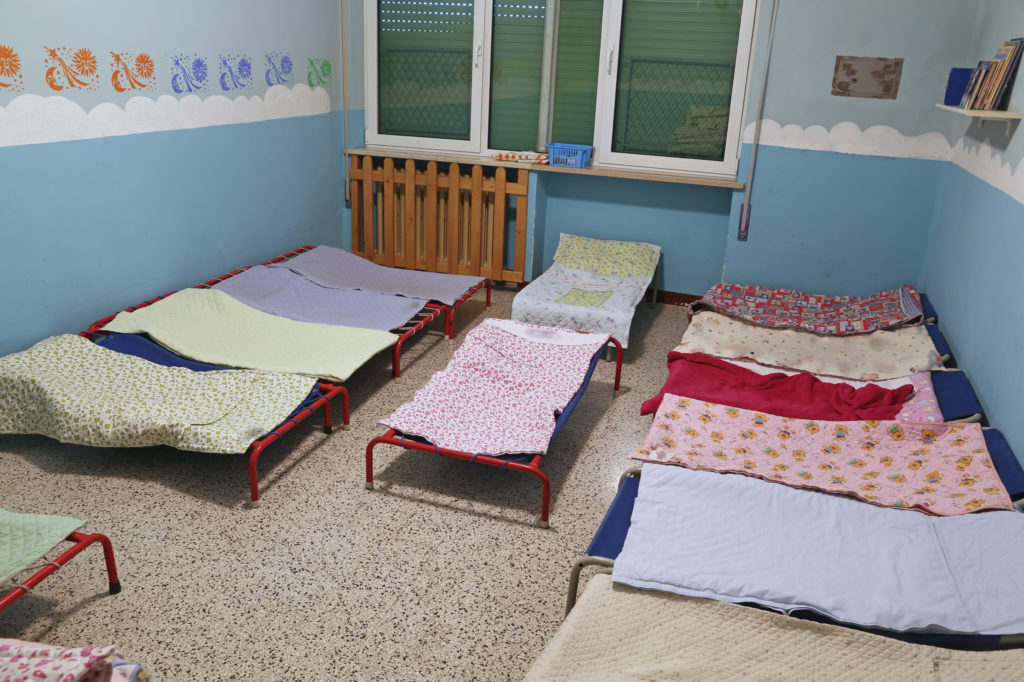What ever happened to the word “orphanage?” It seems like a word that lives exclusively in the past, floating in-between songs in the musical Annie or sweeping chimneys in 18th Century England. With the media-sensationalized images of poor, dirty children crowded together in a dusty bunk room while wiping floors and singing songs, it can be easy to forget that orphanages are the ancestors of modern day foster care.

Today, through increased government oversight and involvement in the needs of displaced youth, the foster care system primarily focuses on placing children into families and away from generalized group housing. However, these communal living arrangements have not disappeared entirely and are now called “congregate care”. Group Homes, Residential Treatment Centers and other forms of community-based living have been embraced in place of the archaic orphanage in the hope that children will be better served. Despite the fact that these congregate care facilities are a vast improvement over the unregulated, impersonal and sometimes cruel orphanages of the past, they are not entirely problem-free. Why is it that group homes and treatment centers across the country are closing their doors? What services did these facilities provide and how will states care for the children who were making use of them? To examine these issues, it is critical to have a clear definition of congregate care in mind.
Understanding the Vocabulary of Congregate Care
According to the New Jersey Department of Children and Families, congregate care is “a children’s residential treatment center, a group home setting or a youth shelter.” These locations, known as “Contracted Agency Homes,” are contracted through DCP&P in coordination with the Children’s System of Care (CSOC) and licensed by the Office of Licensing. These definitions and the specific contracting process will vary from state to state, but New Jersey’s guidelines represent the relationship between these group home facilities and the government of most states. Generally speaking, the licensing body will be responsible for evaluating the facilities and ensuring that they meet all state standards. Unlike orphanages, most congregate care facilities these days deal not with any given youth but with special needs youth specifically. For example, in New Jersey, a group home is considered as a potential placement option for a child who:
- Requires more intensive social services and greater structure and supervision than can be provided in his own home, resource home or shelter home
- Is functioning adequately in school and the community but is having difficulties adjusting to his natural/resource family setting
- Needs a transitional placement between the satisfactory completion of a residential program or psychiatric hospitalization and a return to his own home/resource home or to independent living
There are many variations within congregate care. The Commissioner of the New Jersey Department of Children and Families releases a report every month with greater detail regarding the foster care system in New Jersey, and in this report, out-of-home treatment options are listed as follows:
- Treatment Homes
- Residential Treatment Centers (RTCs)
- Specialty Beds
- Group Homes
- Psychiatric Community Residences
- Intensive Residential Treatment Centers (IRTCs)
- Detention Alternatives
As the variety of out-of-home treatment options suggests, not every group home or congregate care placement is a result of social or emotional issues within the child. As foster parent shortages across the country crop up, group homes and other forms of congregate care are becoming increasingly burdened even as state governments seek to move beyond them. It’s natural to wonder why a nation would move away from a form of care that provides a valuable service to its youth. Before looking at Part 2 to see exactly what’s happening behind the scenes to cause this, check out the spotlight below on a group home contracted with New Jersey.
Group Home Spotlight: Devereux Treatment Center, Florida
The Viera Campus of Devereux
Name: Devereux Advanced Behavioral Health – Florida
Number of Locations: 7+ (Not Including National Locations)
Devereux is a rather robust national health care provider and New Jersey contracts out their Florida campuses. Through the inclusion of foster parents in the treatment of the children, Devereux builds a “treatment team.” Whether its providing licensed therapists to address loss and grieving or setting up an intensive clinical intervention, Devereux has a variety of facilities and skilled staff that help deal with some of the more difficult issues children face. On top of various services like abuse and neglect prevention and family counseling centers, Devereux also has an intensive residential treatment center for foster children with significant mental, emotional or behavioral challenges. This center employs what their website calls the “Positive Behavior Intervention and Supports curriculum,” which emphasizes giving kids the chance to make positive choices. Through the collaboration of psychiatrists, therapists and behavioral analysts, this center helps to provide a positive environment within which struggling children may grow.
Devereux represents one of evolutionary steps in the child welfare system, and certainly a good one. With a wide variety of locations both within Florida and across the nation, perhaps it’s a bit easier to see why these services have become so crucial to those that employ them. However, despite being far removed from the classic idea of an orphanage, in Part 2 we’ll discuss the issues with employing places like Devereux in the child welfare system.
If you’re in New Jersey and would like to know more about Devereux’s treatment philosophy, click here.
If you’re outside of New Jersey and/or looking for more general information, you can refer to the Child Welfare Information Gateway’s section on Out-of-Home Care here.
